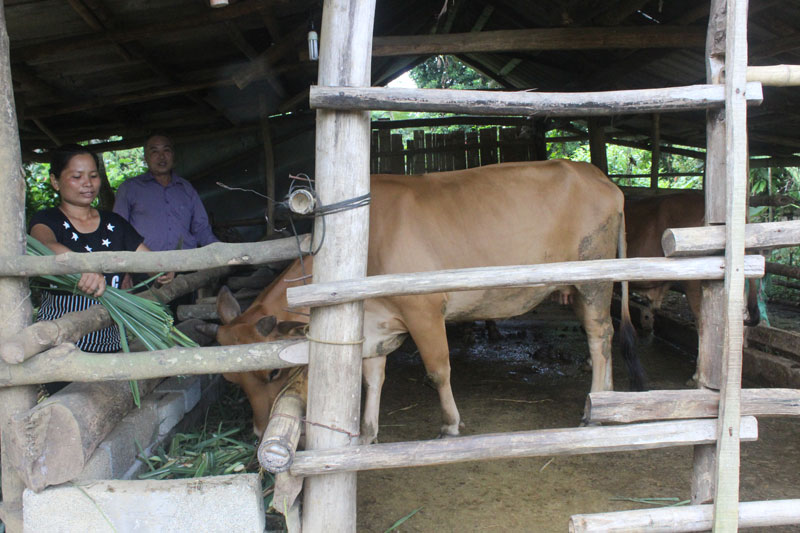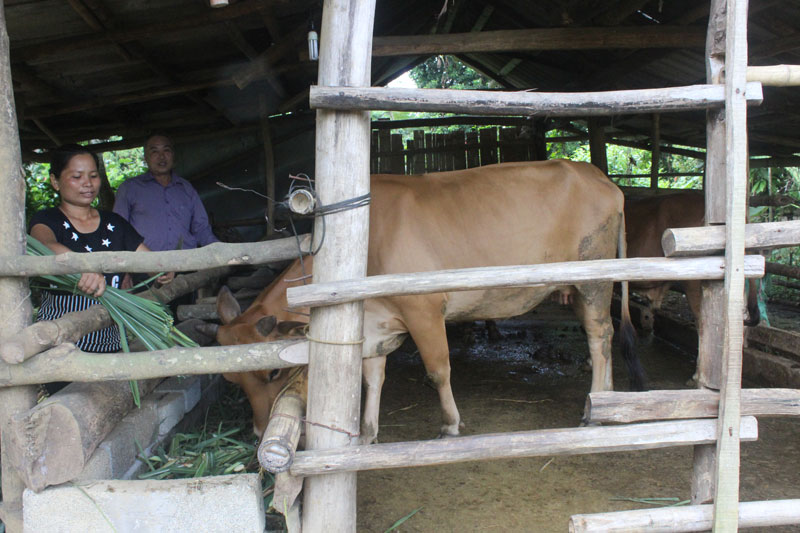
(HBO) – Over the past years, the credit programme for poor households has significantly contributed to poverty reduction and the implementation of the national target programme on sustainable poverty reduction in the northern mountainous province of Hoa Binh.

With
preferential loans from the Vietnam Bank for Social Policies (VBSP), people in
Toan Son commune, Da Bac district, Hoa Binh province, has invested in cow
breeding.
During
2002-2007, the province gave loans of more than 2.4 trillion VND to 217,370
households, with debt collection at over 1.6 trillion VND and outstanding debt
exceeding 863 billion VND, making up 32.4 percent of total outstanding debt.
At
the end of March 2018, accumulated outstanding debt of the programme was more
than 873 billion VND, with 33,018 households in debt, each with 26 million VND.
To
help eligible people access credit loans, improve the quality of credit loans and
support the poor in the context of reduced management and social costs, the
bank has launched entrusted loans via four social-political organisations.
At
the same time, transaction venues have been set up in 210 wards, communes and
towns, which publicise preferential credit policies and address relevant
procedures. More than 90 percent of transactions of the bank have been handled
at these sites with the same quality as in the headquarters.
Vu
Dinh Hoai, Director of the bank’s provincial chapter, said the programme has
opened up opportunities for poor households to access preferential loans,
meeting their demands for capital for production and education while creating
conditions for them to improve living standards and escape from poverty.
Between
2002-2017, more than 90,000 households in the province escaped from poverty,
and the rate of poor households dropped by 3 percent annually.
It
can be said that the credit programme has created a momentum for the poor
households to develop economy and reduce poverty sustainably, he said.
However,
Hoai added that to make the best use of the loans, the localities should pay
attention to vocational guidance, integrate agricultural and forestry
programmes, encourage people to shift economic structure, effectively utilise
local potential and strength, and accelerate poverty reduction./.
The emulation movement "Hoa Binh joining hands to build new-style rural areas” has been widely spreading, becoming a driving force that motivates the localities to renew rural landscapes and improve the material and spiritual lives of the residents. In this movement, the people play a central role-both as the main implementers and direct beneficiaries of its outcomes.
In response to the global digital revolution, Hoa Binh Newspaper is transforming itself into a modern and multi-platform media hub, blending cutting-edge technology with a restructured newsroom and a new generation of tech-savvy journalists.
Hoa Binh province’s Association of the Elderly recently held a conference to review the project on expanding the inter-generation self-help club model until 2025.
In a move to implement Resolution No. 57-NQ/TW, issued on December 22, 2024 by the Politburo, which targets breakthroughs in science-technology development, innovation, and digital transformation, the Hoa Binh provincial Department of Health has issued a plan to roll out the "Digital Literacy for All” campaign within the local health sector.
An Nghia Commune (Lạc Sơn District) is one of the communes that achieved the tha standard of the national new rural area in 2018. Entering a new development phase, the commune is now trying to meet the criteria for the advanced new rural development. With the strong political will and the public consensus, the commune is gradually overcoming the challenges to reach this goal, aiming for the sustainable development.



